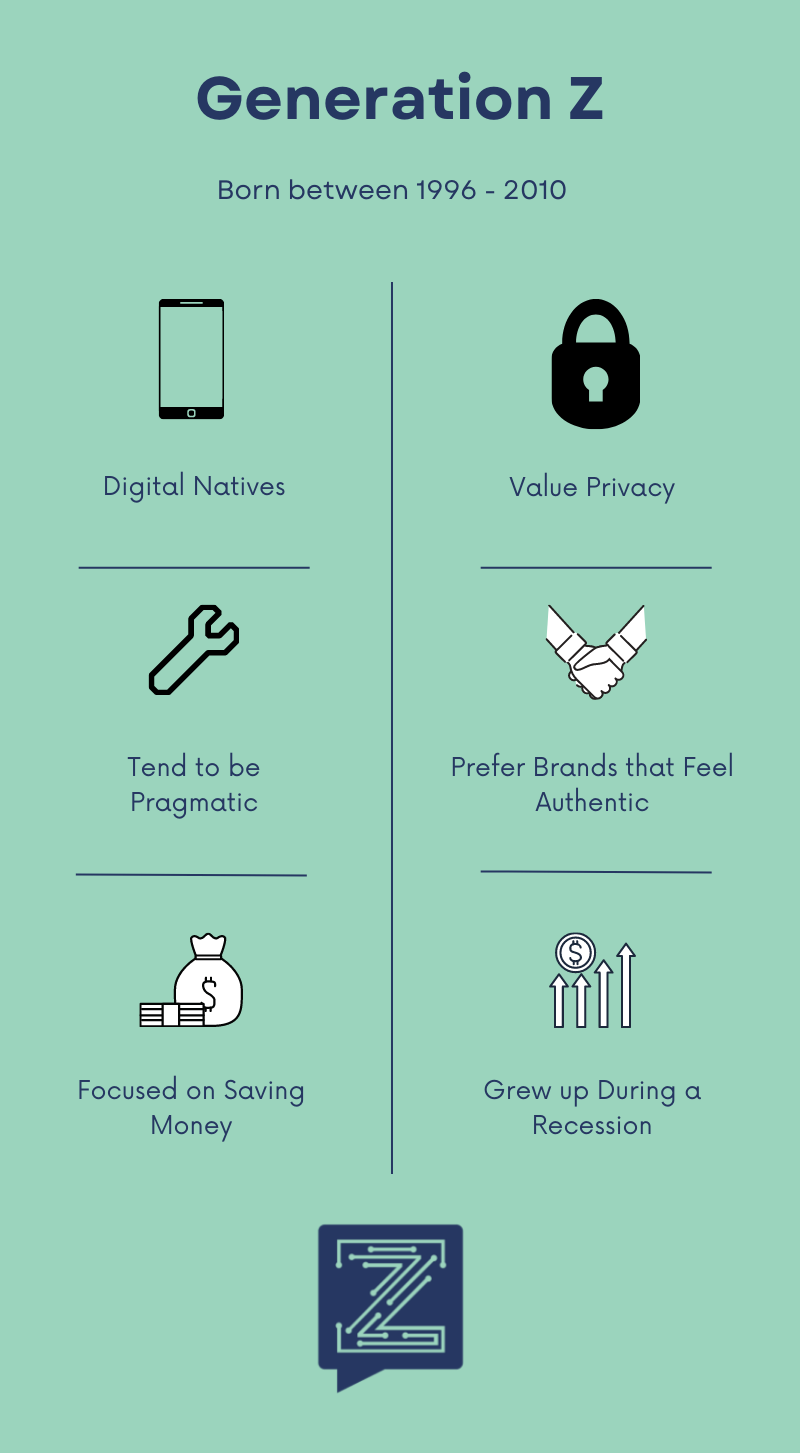Author: Cam McNally, Senior Marketing Strategist
As Generation Z begins to enter their young adult years it’s becoming increasingly important to understand them as consumers and how they are different from other generations. Born between 1996 and 2012, “Gen Zers” are the first digital natives of the world, and their perception of marketing and advertising is much different from other generations. In today’s blog, we will discuss what makes Gen Z unique and what marketing strategies can be used to attract them.
Who is Gen Z?

Gen Z spends a lot of their time online, whether that be for entertainment, shopping, or simply communicating. Gen Z spends on average nine hours per day in front of their screen. As a result, they are very familiar with the online landscape. However, this has unfortunately made digital advertising much more challenging as ads can often go right over their heads if not executed properly.
Gen Z grew up during the Great Recession and having witnessed their parent’s struggles they are more driven by financial security. When it comes to work, Gen Z views their job as a means to an end. Unlike their millennial counterparts who often need to love what they do; Gen Z is more likely to take a job on a job that provides a steady income. Furthermore, they value making smart investments and are more conservative in how they spend their money.
Gen Z is less patient than other generations. This is likely due to the fact they grew up having everything at their fingertips, thanks to the internet. As a result, this generation expects fast and responsive customer service, and many companies are failing at this due to their long wait and hold times.
Gen Z is racially diverse. As America’s demographics continue to shift, Gen Z will be the last generation that is predominantly white. A slight majority of Gen Z (52%) is white; 25% is Hispanic, 14% is Black and 4% is Asian. Early on in their lives, Gen Z saw the inauguration of the country’s first Black president and the legalization of gay marriage. Furthermore, this generation has grown up in more diverse family structures, whether it be a single parent household, a multi-racial household, or a household in which gender roles were blurred. As a result, they are less fazed than previous generations by differences in race, sexual orientation, or religion.
Strategies
As mentioned before, Gen Z can often be immune to digital advertising since they’ve been around it for so many years. To be effective, advertisers should focus on selling the experience that comes with a product rather than highlighting a product’s attributes. Gen Z wants to know how the product will benefit them.
Engagement is very important to Gen Z. They want brands to be personable with them and one-way brands can do this is by interacting with users on social media. Whether it be responding to people on social media or reposting photos of consumers using a brand’s product, it is crucial to maintain a presence across social platforms and show consumers you care about them. Another way brands can be more personable is by providing exceptional customer service. Starbucks is a great example of this. They create a positive and friendly environment in their coffee shops and even write their customers’ names on cups.
Another way brands can stand out is by taking a stance, whether it be social justice, environmental, or political issues. However, brands must make sure to be genuine about these issues and take action to show that they aren’t just going with what is considered “mainstream”.
Using video is another great way to capture Gen Z’s attention. YouTube is often the first platform they turn to for video. 85% of teenagers use this platform and 80% do so to expand their knowledge, and 68% to gain new skills. Brands can leverage this by creating informational videos which in turn will generate awareness and loyalty.
Overview
While every generation is unique, Gen Z is quite different from other generations largely because they’ve grown up with the internet and mobile phones. Understanding how this and other events have shaped them is crucial to creating an effective marketing strategy. If you don’t understand who you’re marketing to you’ll never know how to play your cards. Gen Z already makes up 40% of the number of U.S. consumers and by 2026 they will pass millennials as the largest consumer base in the U.S. It’s clear that understanding this generation is only becoming more important and now you’re ready to tackle them!

Recent Comments